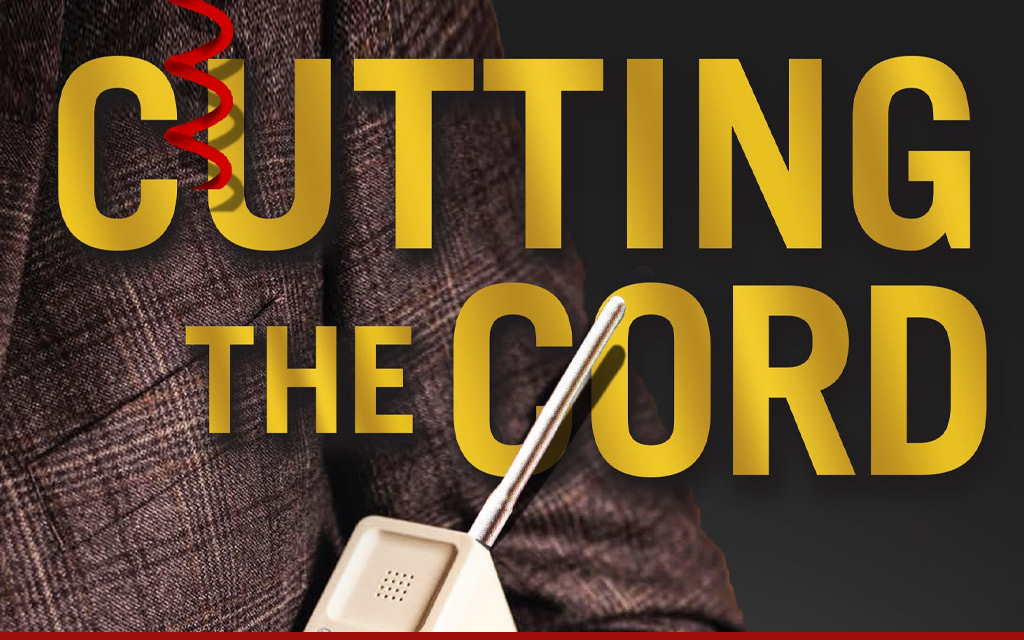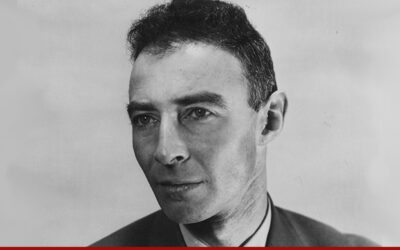
Quick pop-quiz in memory of Alex Trebek: What weighed 2.5 pounds, cost $3,900, and did nothing but talk?
Answer: *What is* the first mobile phone—in 1973.
Martin Cooper is universally celebrated as the father of the modern cell phone. It was developed under his watch at Motorola and was first demonstrated way back then. Cooper, an engineer who headed R&D at Motorola, understood the magnitude of the moment. Standing on a 5th Avenue corner in Manhattan, he placed the first mobile call to his competitor at Bell Labs. It was an Alexander Graham Bell-like moment. Much later, Cooper recreated the moment for this celebratory video.
Before the mobile phone, Motorola dominated the market for two-way radios. Bell Labs was on track to create the car phone. Cooper recalls that what Bell Labs didn’t see was that car phone would be just as tethered as a landline phone, only to a car instead.
His vision for the next phone was based on his belief that people and businesses needed to be untethered. “Communications are for people. People are mobile. People need portable communications,” he says now. That was Cooper’s lodestar at Motorola.
Now Cooper, 91, has written a memoir, Cutting the Cord: The Cell Phone Has Transformed Humanity. But the book and its author offer more than a history lesson. Cutting the Cord is a manifesto that addresses the innate need for people to communicate–past, present and future. “In Motorola’s two-way radio business, we saw it every day as police and firemen, airport workers and others became attached to their portable two-way radios. They couldn’t manage without them,” observes Cooper. “That’s exactly what happened to the over 5 billion cell phone users in the world today.”
When it finally got FCC approval to be released commercially in 1983, the DynaTAC 8000X, as it was known, was all talk. Nothing more. “When I conceived of the portable cellular handset, there was no internet, no digital cameras. And the battery to run that primitive cell phone was bigger and heavier than four modern cell phones. But I knew that, someday, everyone would have a cell phone,” he says.
And it was more than just just a device. Motorola’s new phone would require an ecosystem. “We had to build standards, not just a phone,” emphasizes Cooper. The book is a story, he says, that “centers on a battle for control of how people communicate, involving government regulators, lobbyists, police, technology breakthroughs, and failures.”
What positioned Motorola, a two-way radio maker, and this engineer trained at Illinois Institute of Technology to battle the largest company in the world– the giant monopoly AT&T? “They bet the company on my vision of a portable-based system and stuck with it for a dozen years without a nickel of revenue, “ recalls Cooper. “Our founder’s motto was ‘Reach Out! Do not fear failure,’ and they and I took that seriously. What other company would allow a dreamer with his head in the clouds to assemble their smartest engineers in a successful effort to build the first cell phone in three months? We dazzled the world with that phone, although few believed we could actually commercialize it.” Ultimately, arrogance and hubris at Motorola helped allow companies like Qualcomm and Nokia offer better, cheaper mobile phones, but Motorola enjoyed success for many years.
After a 29-year career at Motorola, Cooper left to focus on entrepreneurship and building tools for the new wireless era. “We knew that this would be the future” says Cooper despite the fact that when the phone was built “there was no such thing as the digital camera, the internet or a large scale integrated circuit.” But today’s smartphone was still built on those early standards he played such a crucial role in pioneering.
Cooper muses on the worldwide impact of that first call to his friend and rival in 1973. “The cellphone has taken over a billion people out of severe poverty in Africa. It’s brought healthcare to remote villages in Mexico and India. It’s taken poor people and turned them into entrepreneurs. It’s affected billions of people.”
But for all that’s happened since 1973, it’s still early days for this now-indispensable, even addictive invention, Cooper believes. “The cell phone has become an extension of the human being, he says, citing an important case in which Chief Justice Roberts ruled as much on the U.S. Supreme Court.
As for the future? “As artificial intelligence is evolved into the modern cell phone, it will be more and more, personalized and customized to its owner. It will be always learning and adapting to that owner. It will become an extension of the person, taking over routine tasks like remembering and calculating, allowing the person to focus on creation and reasoning. It’s ironic that, even today, we call this device a ‘phone’,” he says. And he has very specific ideas about improvements we can expect to see: “It’s ridiculous that we expect a cell phone user to select from two million apps to customize their phone to its unique user. The built-in intelligence of the future phone will either curate an existing app or create a new one.” Cooper’s book Cutting the Cord becomes available this January. You will be able to hear more directly from him at the Health+Wealth of America virtual conference on December 1-3.
Register for the Health+Wealth Virtual Conference: here




